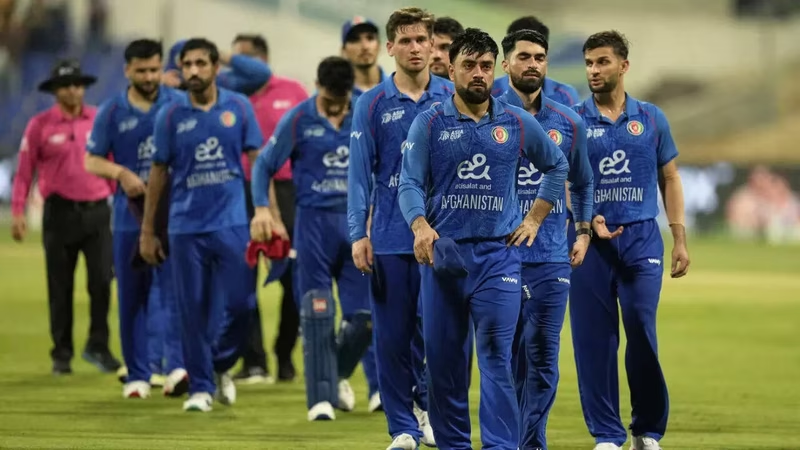Afghan Chief Selector Slams CA Over Bilateral Series Boycott
In a bold and emotionally charged statement, **Afghanistan cricket** chief selector Asadullah Khan has condemned Cricket Australia (CA) for its continued refusal to engage in bilateral series with the Afghan national team. Khan labeled the decision as not just unfair—but a worrying sign for the future of the so-called ‘gentleman’s game.’ His remarks come amid mounting international scrutiny over the Taliban’s restrictions on women’s rights in Afghanistan, which CA and other Western boards have cited as justification for isolating the country’s cricketing body .
Table of Contents
- Why Cricket Australia Is Boycotting Afghanistan
- Asadullah Khan: Merit vs. Politics
- Afghanistan Cricket and the Women’s Game
- BCCI Support and Regional Alliances
- Afghanistan T20 World Cup 2025 Ambitions
- Broader Implications for International Cricket
Why Cricket Australia Is Boycotting Afghanistan
Since the Taliban regained control of Afghanistan in 2021, Cricket Australia has maintained a firm stance: no official bilateral cricket will be played with the Afghanistan national team until the Afghan Cricket Board (ACB) reinstates its women’s cricket program . The Taliban government has effectively banned women from participating in sports, a move that violates the International Cricket Council’s (ICC) membership criteria requiring gender inclusivity .
While CA’s position is rooted in human rights advocacy, critics—including Khan—argue that punishing the men’s team, which operates independently of government policy, sets a dangerous precedent where athletes become pawns in geopolitical disputes.
Asadullah Khan: Merit vs. Politics
“This is not a good sign for cricket,” Khan told reporters, expressing deep frustration. “Our players have earned their place on the global stage through performance—not politics.” He emphasized that the **Afghanistan cricket** team has consistently punched above its weight in international tournaments, from World Cups to high-profile bilateral contests against top-tier nations .
Khan’s central argument is simple: the men’s team should not be held accountable for decisions made by a regime they do not control. “These are young men who left their homes, trained tirelessly, and now represent their country with dignity. To deny them competition based on issues beyond their control is unjust,” he added .
Afghanistan Cricket and the Women’s Game
The absence of a functional women’s cricket program remains the core of the controversy. The ICC has repeatedly urged the ACB to take concrete steps toward reinstating women’s cricket, but progress has been minimal under the current regime .
Notably, the ICC has not suspended Afghanistan’s membership—likely due to the men’s team’s competitive success and the board’s nominal assurances. However, this limbo state creates tension between ethics and sport. As one ICC insider noted anonymously, “It’s a balancing act between upholding values and maintaining competitive integrity.”
BCCI Support and Regional Alliances
In stark contrast to Western boards, the Board of Control for Cricket in India (BCCI) has maintained strong ties with **Afghanistan cricket**. Khan expressed heartfelt gratitude to India and the BCCI for their unwavering support, calling it a “lifeline” for Afghan players .
India has hosted Afghanistan teams for training camps and even facilitated neutral-venue matches. This regional solidarity has allowed Afghan cricketers to stay match-fit and competitive despite global isolation. “Without India’s support, our journey would have been far more difficult,” Khan acknowledged .
Afghanistan T20 World Cup 2025 Ambitions
Looking ahead, Khan remains optimistic about Afghanistan’s chances at the upcoming T20 World Cup. “We have world-class match-winners—Rashid Khan, Naveen-ul-Haq, Azmatullah Omarzai. Our squad is built for high-pressure tournaments,” he said confidently .
Despite lacking consistent bilateral fixtures, Afghanistan has performed admirably in ICC events. Their aggressive brand of cricket and fearless approach make them a dark horse in any T20 tournament. Khan believes that if given fair opportunities to compete, the team can go all the way in 2025 .
Broader Implications for International Cricket
The standoff between CA and Afghanistan raises fundamental questions about the role of sport in geopolitics. Should athletic merit be separated from national policy? Or does sport carry a moral responsibility to reflect broader societal values?
According to experts at the Sport and Development Organization, a non-competing authority on global sports ethics, “Sport can be a powerful tool for diplomacy—but it shouldn’t come at the cost of silencing athletes who are themselves victims of oppressive systems” .
As CA and other boards continue their boycott, the cricketing world watches closely. The outcome could redefine how international sport navigates human rights, political realities, and the spirit of competition.
Final Thoughts
Asadullah Khan’s passionate defense of his players underscores a critical dilemma in modern cricket: how to uphold ethical standards without sacrificing the careers of innocent athletes. While the issue of women’s rights in Afghanistan is non-negotiable, the blanket boycott of the men’s team may not be the most effective path forward. Dialogue, conditional engagement, and targeted support—like India’s approach—might offer a more constructive middle ground.
Sources
- Times of India: ‘Not a good sign for cricket’: Afghan chief selector slams CA
- Cricket Australia: Official Statement on Afghanistan Engagement
- ICC: Afghanistan Membership and Governance Review
- ESPNcricinfo: The Rise of Afghanistan Cricket
- BCCI: Support for Afghan Cricket Development
- ICC: Afghanistan T20 World Cup Squad Profile
- Sport and Development: Sport, Human Rights, and Diplomacy
